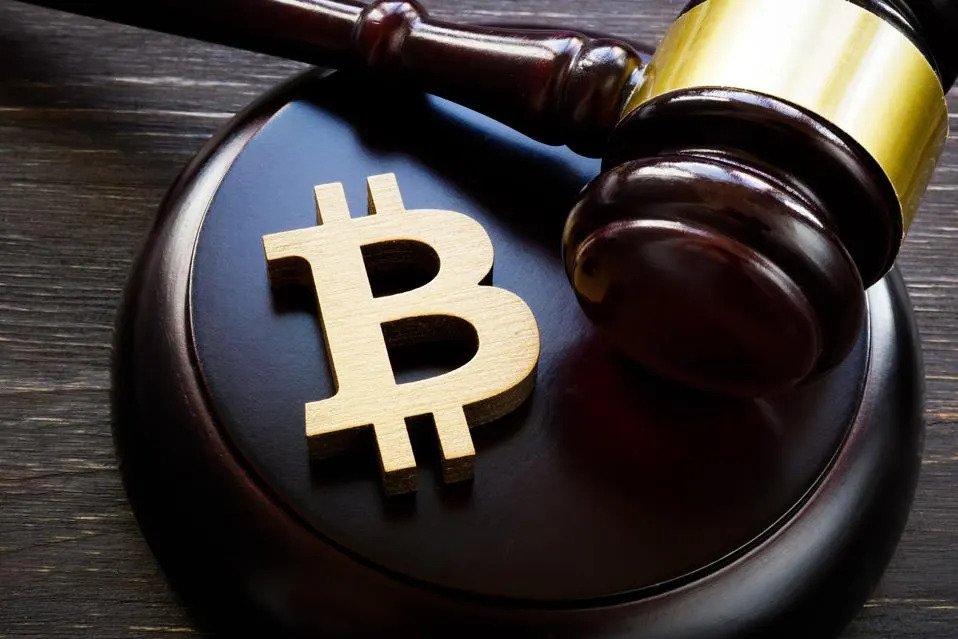An overview of cryptocurrency regulations in Nigeria

The legal status of cryptocurrency in Nigeria is complex and has been changing over time. In February 2021, the Central Bank of Nigeria (CBN) issued a circular banning commercial banks in Nigeria from engaging in cryptocurrency transactions. However, the CBN has not explicitly prohibited individuals from trading or holding cryptocurrency.
In May 2022, the Securities and Exchange Commission (SEC) of Nigeria issued a statement recognizing digital assets as securities and issuing regulations on exchange and custody of cryptocurrencies in the country. This statement suggests that the SEC is taking a more proactive approach to regulating cryptocurrency in Nigeria.
Despite the regulatory uncertainty, cryptocurrency trading remains popular in Nigeria. A 2022 survey by Statista found that Nigeria had the highest adoption rate of cryptocurrency in Africa, with over 10% of the population owning some form of cryptocurrency.
In June 2023, the Nigerian government introduced a tax on gains on digital assets, including cryptocurrency. This move suggests that the government is acknowledging the growing importance of cryptocurrency in the Nigerian economy.
Overall, the legal status of cryptocurrency in Nigeria is still uncertain. However, there are signs that the government is moving towards a more regulated approach to cryptocurrency.
Here are some additional points to consider
- The CBN has said that it is open to working with the SEC to develop a regulatory framework for cryptocurrency.
- The Nigerian government is also considering the use of blockchain technology for government services.
As the legal and regulatory landscape for cryptocurrency in Nigeria continues to evolve, it is important to stay informed about the latest developments.
Cryptocurrency adoption and growth in Nigeria
Cryptocurrency adoption in Nigeria has witnessed a remarkable surge in recent years, making the country a global pioneer in this digital asset realm. This widespread embracing of cryptocurrencies can be attributed to several factors, including:
1. Absence of Traditional Financial Services: A significant portion of the Nigerian population lacks access to traditional banking services, leaving them underserved by conventional financial institutions. Cryptocurrencies offer an alternative solution, providing a means for storing and transferring value without the need for intermediaries like banks or financial institutions.
2. Economic Challenges: Nigeria has experienced economic instability and currency fluctuations, causing individuals to seek alternative investment and wealth preservation options. Cryptocurrencies, with their potential for high returns and decentralized nature, have emerged as an attractive choice for many Nigerians.
3. Remittances: Nigeria receives substantial remittances from its diaspora, and traditional remittance methods often involve high fees and lengthy processing times. Cryptocurrencies, with their low transfer fees and near-instant transaction speeds, have become a popular choice for sending and receiving remittances within and outside of the country.
4. Youthful Population: Nigeria has a young and tech-savvy population, with a large proportion of individuals actively using the internet and social media. This digital-savvy demographic has been at the forefront of adopting cryptocurrencies, driven by the ease of access and the potential for financial inclusion.
5. Regulatory Ambiguity: The Nigerian government has not yet established a clear regulatory framework for cryptocurrencies. While this ambiguity has raised concerns among some investors, it has also allowed the industry to flourish somewhat unregulated, enabling innovation and growth.
To illustrate the growth of cryptocurrency adoption in Nigeria, consider the following statistics:
In 2021, Nigeria ranked 6th globally in terms of crypto-related usage, according to a report by Chainalysis.
According to a 2022 survey by Triple-A, Nigeria had the highest number of cryptocurrency users in Africa, with 33.4% of internet users having invested in or owned cryptocurrencies.
In 2023, a report by Kucoin found that Nigeria had the highest search volume for cryptocurrency-related terms in Africa.
These figures highlight the exponential growth of cryptocurrency adoption in Nigeria, transforming the country into a hub for crypto enthusiasts and entrepreneurs. While regulatory uncertainty remains, the potential benefits of cryptocurrencies for economic inclusion, financial freedom, and cross-border payments are driving their adoption in Nigeria and across Sub-Saharan Africa.
Is cryptocurrency legal in Nigeria?
The legal status of cryptocurrency in Nigeria is complex and evolving. In February 2021, the Central Bank of Nigeria (CBN) issued a circular directing banks to cease facilitating cryptocurrency transactions. This effectively banned cryptocurrency trading on traditional Nigerian exchanges. However, the ban does not explicitly criminalize the possession or use of cryptocurrencies.
In June 2023, the Nigerian government introduced a new tax law that applies a 10% levy on gains from cryptocurrency transactions. This suggests that the government is acknowledging the existence and use of cryptocurrencies, even if it is not formally endorsing them.
As of November 2023, there is no clear consensus on the legal status of cryptocurrency in Nigeria. Individuals can still buy, sell, and trade cryptocurrencies, but they do so at their own risk. There is a possibility that the CBN or other authorities could take further action against cryptocurrency activities.
It is important to note that cryptocurrency is a highly volatile asset, and its value can fluctuate dramatically. Investors should conduct their own research and understand the risks involved before investing in cryptocurrency.
Here is a summary of the current legal situation:
- The CBN has banned cryptocurrency trading on traditional Nigerian exchanges.
- The possession or use of cryptocurrencies is not explicitly criminalized.
- A 10% tax is levied on gains from cryptocurrency transactions.
- The legal status of cryptocurrency is evolving, and it is possible that further action could be taken.
Is cryptocurrency regulated in Nigeria?
Cryptocurrency regulation in Nigeria is a complex and evolving landscape. In February 2021, the Central Bank of Nigeria (CBN) issued a circular banning banks from supporting cryptocurrency transactions. This ban was met with significant backlash from the public, and the CBN has since clarified its position to state that individuals are not prohibited from buying and trading crypto, just not through any Nigerian bank or fintech.
In May 2023, the Nigerian government introduced a 10 percent taxation of gains on the disposal of digital assets, including cryptocurrency. This taxation policy suggests a willingness to acknowledge and regulate cryptocurrency, albeit with a cautious approach.
The Securities and Exchange Commission (SEC) of Nigeria is also considering regulating cryptocurrency, and a committee was established in 2021 to explore the possibility of developing a regulatory framework for the industry.
While there is no specific law governing cryptocurrencies in Nigeria, some regulatory measures have been taken, and the government is actively considering further regulation. This suggests that cryptocurrency is not entirely unregulated in Nigeria, but the exact nature of regulation is still being determined.
Crypto asset rules in Nigeria for crypto exchanges
The regulatory landscape for cryptocurrencies in Nigeria is complex and evolving. In February 2021, the Central Bank of Nigeria (CBN) issued a circular prohibiting financial institutions from facilitating cryptocurrency transactions. This effectively cut off Nigerian crypto exchanges from the traditional banking system, making it difficult for users to deposit and withdraw fiat currency.
ALSO READ: What Is Two-factor Authentication (2fa) And How To Use It In Crypto
However, in May 2022, the Securities and Exchange Commission (SEC) of Nigeria introduced new rules for the regulation of digital assets. These rules provide a more comprehensive framework for the operation of crypto exchanges in Nigeria, including:
Registration requirement: All crypto exchanges operating in Nigeria are required to register with the SEC.
Know Your Customer (KYC) and Anti-Money Laundering (AML) requirements: Crypto exchanges must implement robust KYC and AML procedures to verify the identities of their customers and prevent money laundering and other illicit activities.
Market Integrity: Crypto exchanges must maintain market integrity by preventing market manipulation and ensuring fair and transparent trading conditions.
Financial Reporting: Crypto exchanges must submit weekly and monthly trading information to the SEC, and quarterly and annual financial and compliance reports.
Digital Asset Listing: Crypto exchanges must obtain a “no objection” from the SEC before listing any digital asset on their platform.
Virtual Asset Service Provider (VASP) license: Crypto exchanges must obtain a VASP license from the SEC. A VASP license is a requirement for any entity that provides services related to cryptocurrencies, such as cryptocurrency exchange, wallet, or custody services.
The SEC’s new rules are a step towards a more regulated and compliant crypto industry in Nigeria. However, the CBN’s ban on banks’ involvement in cryptocurrency transactions remains in place, which continues to pose challenges for crypto exchanges and their users.
Here is a summary of the key takeaways for crypto exchanges in Nigeria:
Register with the SEC: This is a mandatory requirement for all crypto exchanges operating in Nigeria.
Implement robust KYC and AML procedures: This is essential to protect against money laundering and other illicit activities.
Maintain market integrity: Ensure fair and transparent trading conditions for all users.
Submit regular reports to the SEC: Comply with the SEC’s reporting requirements.
Obtain a “no objection” from the SEC for asset listings: Ensure that all listed assets meet the SEC’s requirements.
Obtain a VASP license: This is a requirement for all VASPs in Nigeria.
Work with the SEC to develop a more compliant and regulated crypto ecosystem: Collaborate with the SEC to address the challenges faced by the crypto industry in Nigeria.
Can you cash out crypto for fiat in Nigeria?
Using a centralized cryptocurrency exchange (exchange): Exchanges like Luno, Quidax, and Paxful allow you to buy and sell cryptocurrencies for fiat currencies like the Nigerian naira (NGN). You can typically deposit NGN into your exchange account using bank transfer or mobile money and then sell your crypto for NGN.
Using a decentralized exchange (DEX): DEXs are peer-to-peer platforms that allow you to buy and sell cryptocurrencies directly with other users. You can often use NGN to purchase cryptocurrencies on DEXs, and you can then sell your crypto for NGN or another cryptocurrency.
Using a P2P exchange: P2P exchanges match buyers and sellers of cryptocurrencies directly. You can typically use NGN to buy and sell cryptocurrencies on P2P exchanges, and you can often choose between different payment methods, such as bank transfer, mobile money, or cash deposit.
Using a non-fungible token (NFT) marketplace: Some NFT marketplaces allow you to sell your NFTs for fiat currencies. This can be a good option if you have valuable NFTs that you want to convert into cash.
The fees that you will pay to cash out your crypto for fiat will vary depending on the method you use. Exchanges typically charge a fee for each transaction, and P2P exchanges may charge a fee for their services.
Here is a table summarizing the main methods of cashing out crypto for fiat in Nigeria:
| Method | Description | Fees |
|---|---|---|
| Centralized exchange | Buy and sell cryptocurrencies for NGN | Typically 0.1% to 1% per transaction |
| Decentralized exchange | Buy and sell cryptocurrencies directly with other users | Varies depending on the DEX |
| P2P exchange | Match buyers and sellers of cryptocurrencies directly | Varies depending on the P2P exchange |
| NFT marketplace | Sell your NFTs for fiat currencies | Varies depending on the NFT marketplace |
Is crypto taxable in Nigeria?
Yes, cryptocurrencies are taxable in Nigeria. In May 2023, the Nigerian government introduced a 10% tax on gains from digital assets, which includes cryptocurrencies. This tax applies to individuals and companies, whether registered in Nigeria or non-resident companies (NRCs), that make any gains on the disposal of digital assets.
The Capital Gains Tax Act (CGT Act) was amended to include digital assets as a form of property subject to tax. This means that any profit made from buying and selling cryptocurrencies, as well as other digital assets like non-fungible tokens (NFTs), is taxable. The tax rate is a flat 10% of the total gain.
The amendment to the CGT Act also specifies that the cost of acquisition, including any fees or commissions paid, can be deducted from the proceeds of the disposal to determine the taxable gain. This means that investors can reduce their taxable liability by deducting the costs associated with purchasing and selling their cryptocurrencies.
ALSO READ: An Overview Of Cryptocurrency Regulations In South Korea
It’s important to note that the Nigerian government is still developing regulations surrounding cryptocurrency taxation. The exact implementation of the tax, including reporting requirements and penalties for non-compliance, is yet to be finalized. It’s recommended that individuals and businesses consult with a tax advisor to understand their specific tax obligations related to cryptocurrency transactions.
The future of cryptocurrency in Nigeria
The future of cryptocurrency in Nigeria is uncertain, but there are several factors that suggest that it could play an increasingly important role in the country’s economy.
Nigeria’s young, tech-savvy population is one of the main factors driving the adoption of cryptocurrency. A 2022 study by Finder.com found that 33% of Nigerians have invested in or traded cryptocurrency, and this number is likely to grow as more people become aware of the potential benefits of digital assets.
The instability of the Nigerian naira is another factor that is driving interest in cryptocurrency. The naira has lost over 50% of its value against the US dollar in the past decade, and this volatility has made it difficult for people to save and invest. Cryptocurrency offers a more stable store of value, and it is also easier to transfer across borders than fiat currency.
The Nigerian government is also taking steps to promote cryptocurrency adoption. In 2021, the Central Bank of Nigeria (CBN) launched its own central bank digital currency (CBDC), called the eNaira. The eNaira has been slowly gaining acceptance, and it could help to further integrate cryptocurrencies into the Nigerian economy.
Despite these positive developments, there are also some challenges that could hinder the growth of cryptocurrency in Nigeria. One challenge is the lack of regulatory clarity. The CBN has banned banks from facilitating cryptocurrency transactions, and this has made it difficult for people to access and use crypto. The government is currently working on a new cryptocurrency framework, but it is not clear when it will be finalized.
Another challenge is the lack of awareness about cryptocurrency. Many Nigerians are still not familiar with the technology, and they may be hesitant to invest in something they do not understand. Educating the public about the benefits of cryptocurrency is essential for its long-term success.
Despite these challenges, the future of cryptocurrency in Nigeria is bright. The country has a strong foundation for cryptocurrency adoption, and the government is taking steps to promote the technology. With more education and regulatory clarity, cryptocurrency could play a major role in Nigeria’s economy in the years to come.
In Conclusion:
Cryptocurrency has the potential to revolutionize the financial landscape in Nigeria, but it is not without its challenges. The lack of awareness and understanding among the general public has hindered its widespread adoption. However, with the right education and regulatory framework in place, cryptocurrency could unlock new opportunities and drive economic growth in the country. It is crucial for stakeholders to work together to address these challenges and ensure a bright future for cryptocurrency in Nigeria.







